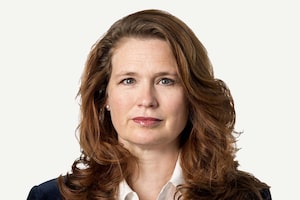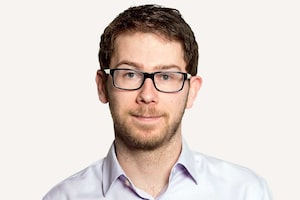Good morning. Wendy Cox in Vancouver today.
Voter turnout in civic elections is notoriously low, with only 39 per cent of eligible voters casting a ballot in Vancouver during the last elections in 2018. It’s possible to hold out hope that things will get better this weekend when people in Vancouver head to the polls once again. But voters are going to have to demonstrate a level of dedication well beyond what’s asked of them in federal and provincial campaigns.
On the ballot in Vancouver on Saturday will be 15 candidates for mayor and 60 candidates running for 10 council seats. There will be a list of 32 candidates for seven spots on the Park Board and 31 candidates to choose from for nine school trustee positions.
If someone is a voter leaning toward the centre or the right end of the spectrum, they have 19 candidates from three parties to choose from. If someone is a voter leaning more to the left, they have a smorgasbord of 23 candidates representing six parties. Add in Progress Vancouver, a pro-housing party with six candidates, and assorted other candidates without an affiliation. Anyone heading into a voting booth on Saturday will likely have had to do some homework, city reporter Frances Bula wrote last week.
“I’ve never spent more time and energy on following municipal politics as during the lead-up to this election and it is still confusing as heck to me. It is hard to have a strategy,” Jason Kurtz, a 40-something Vancouver voter, told Frances.
The wide array of choices also reflects some diligent thinking on the part of parties and candidates on the key issues of housing, public order and the drug crisis. In trying to offer general details of the plans, Frances – and now me here – ran the risk of highlighting some policies over others.
But in the interest of trying to help out confused voters, Frances took a stab at it this past weekend.
On housing, the ideas range from current Mayor Kennedy Stewart’s pledge of building 220,000 homes in 10 years, with 140,000 of them as rentals. At the other end of the spectrum, TEAM for a Livable Vancouver is the least enthusiastic about blanket promises of new supply, saying the current approach to development is problematic and hasn’t produced affordable housing. Mayoral candidate Colleen Hardwick has said the party would rescind the approvals for the Broadway Plan (slated to add 30,000 new homes along the Broadway corridor in the next 30 years) and the Vancouver Plan (slated to provide for 260,000 more residents overall in the next 30 years). Instead, the party would work to find room for new housing in a way that is tailored to individual neighbourhoods.
The Greens have a 12-point plan to create and preserve affordable housing. Progress Vancouver has set a target of building 15,000 new homes a year, half of them rental. OneCity and Vision Vancouver have promised to rezone the city to allow more low- and mid-rise apartment buildings.
On tackling public order, mental health and the toxic drug supply, Ken Sim and his ABC party have pledged to hire 100 new police officers who would work with 100 psychiatric nurses. On his right, NPA mayoral candidate Fred Harding has said his party would clear the tents on Hastings Street by Christmas and pour more resources into policing.
In general, OneCity, Vision, the Green Party, Progress Vancouver, VOTE Socialist and COPE support less policing and more social services to address the city’s current issues in varying degrees. They in general call for ensuring a better supply of safe drugs to reduce the current record-high death rate from drug poisoning, as well as more services of all kinds for people on the street or drug users.
None of the parties explain how they would pay for their promises or even if the city has the power to make them a reality.
“So many require multiple collaborations with many other municipalities, many ministries, the province and the federal governments,” said Andrea Reimer, a city councillor during Vision Vancouver’s reign from 2008 to 2018. She now teaches politics at the University of British Columbia and Simon Fraser University.
But voters don’t have to fill out the entire ballot. Indeed, anyone can cast a vote for a single candidate and turn over their choice with the rest unmarked – the vote will still count. And only the most cynical observer would complain this has been an election about nothing, a criticism one could reasonably have levelled in the last federal and provincial campaigns.
This is the weekly Western Canada newsletter written by B.C. Editor Wendy Cox and Alberta Bureau Chief James Keller. If you’re reading this on the web, or it was forwarded to you from someone else, you can sign up for it and all Globe newsletters here.
 Wendy Cox
Wendy Cox James Keller
James Keller